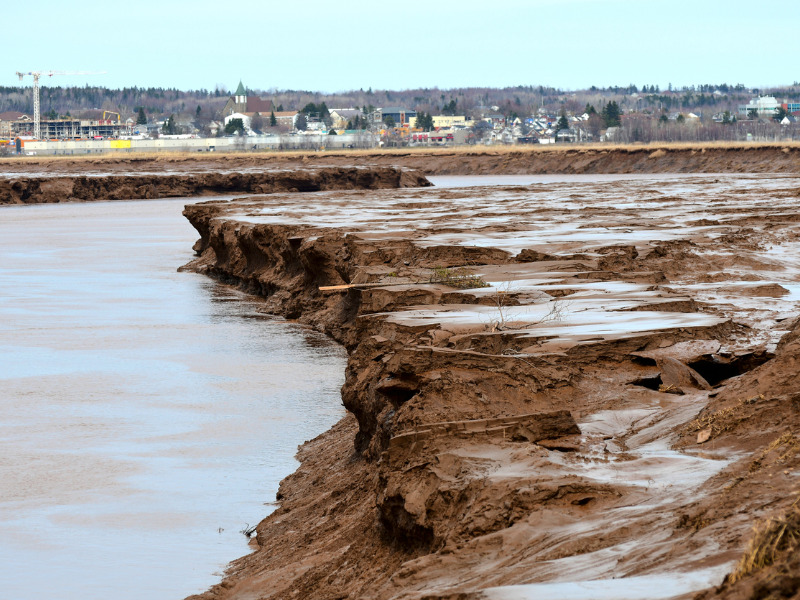New Brunswick to set caps on disaster financial assistance for homeowners

FREDERICTON — The New Brunswick government announced Wednesday it is capping financial compensation for properties that repeatedly experience damage from climate-related disasters.
Public Safety Minister Kris Austin said the changes, which take effect immediately, will increase to $200,000 the total a homeowner can claim for disasters such as flooding and coastal storm surge, up from $160,000.
But once the $200,000 limit has been reached for incidents of the same nature, the property will have a notice placed on the provincial land registry indicating it’s ineligible for assistance after a similar disaster.
Austin gives the example of a property damaged three times by overland flooding resulting in two claims of $60,000 and one for $80,000; if the home were flooded a fourth time, the owners would not be eligible for aid.
Intense “weather events” are increasing across Canada, and New Brunswick has been walloped with more flooding, erosion, power interruptions, damage to property and greater pressure on emergency response, he told a news conference.
Austin said every level of government is struggling to cope with the financial implications of climate-related disasters. “And we cannot afford to continue with business as usual.”
He said the changes also include increasing the maximum payout for structural damage and lowering the threshold at which the government would buy out homeowners affected by floods.
Under the previous scheme, he said, the damage had to be 80 per cent of the property’s fair market value for a homeowner to be offered a buyout. “For future disasters, the threshold has changed to 50 per cent arising from one event, or 80 per cent accumulated across multiple disasters, such as flooding,” he said.
The program is designed to help homeowners get out of harm’s way and ensure the taxpayer is not repeatedly paying for the same homes, Austin said.
Luis Seco, a math professor at the University of Toronto who studies risk and finance, said the move by the New Brunswick government is one that can be expected from other provinces and from insurance companies as climate change affects more areas.
It is a way for governments and companies to protect themselves against possible increased liabilities, he said.
“The expectation, or the fear, is we’re going to see more natural catastrophes. So, if you’re in a dangerous area, you’re encouraged to move out,” he said in an interview. “We’re going to see more of this. This is perhaps a reflection of the times.”
Feature image by iStock.com/Greenseas







